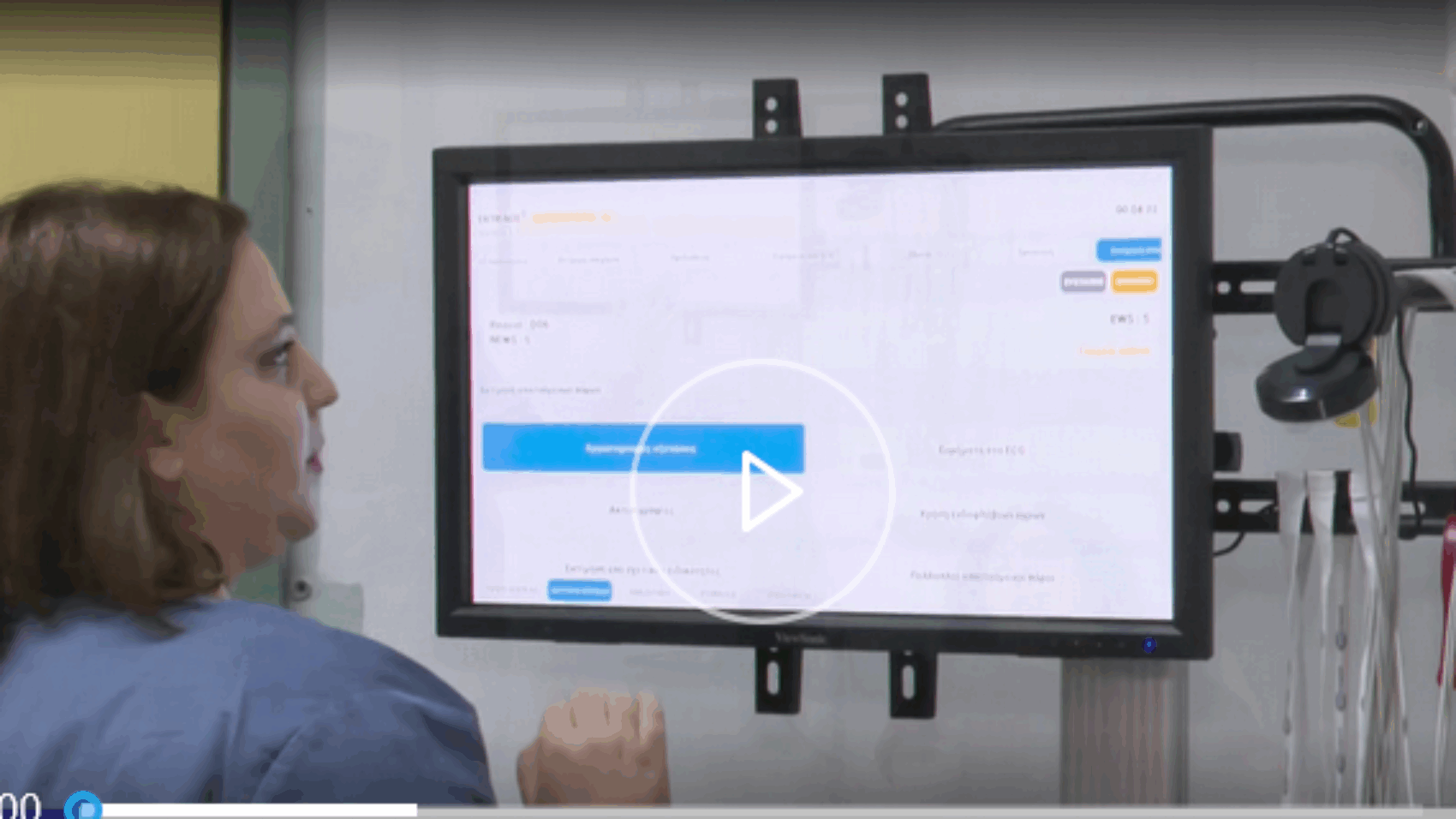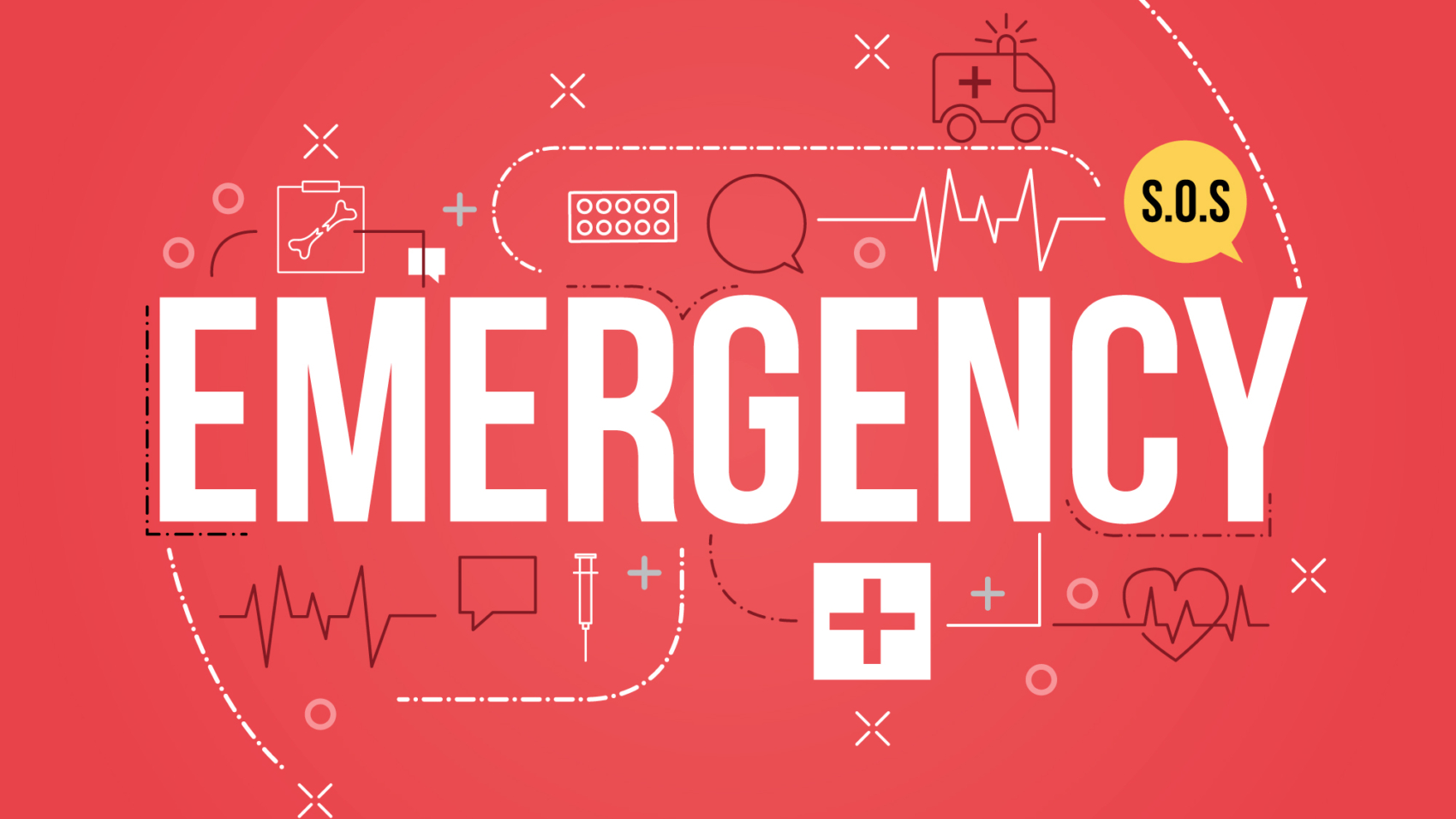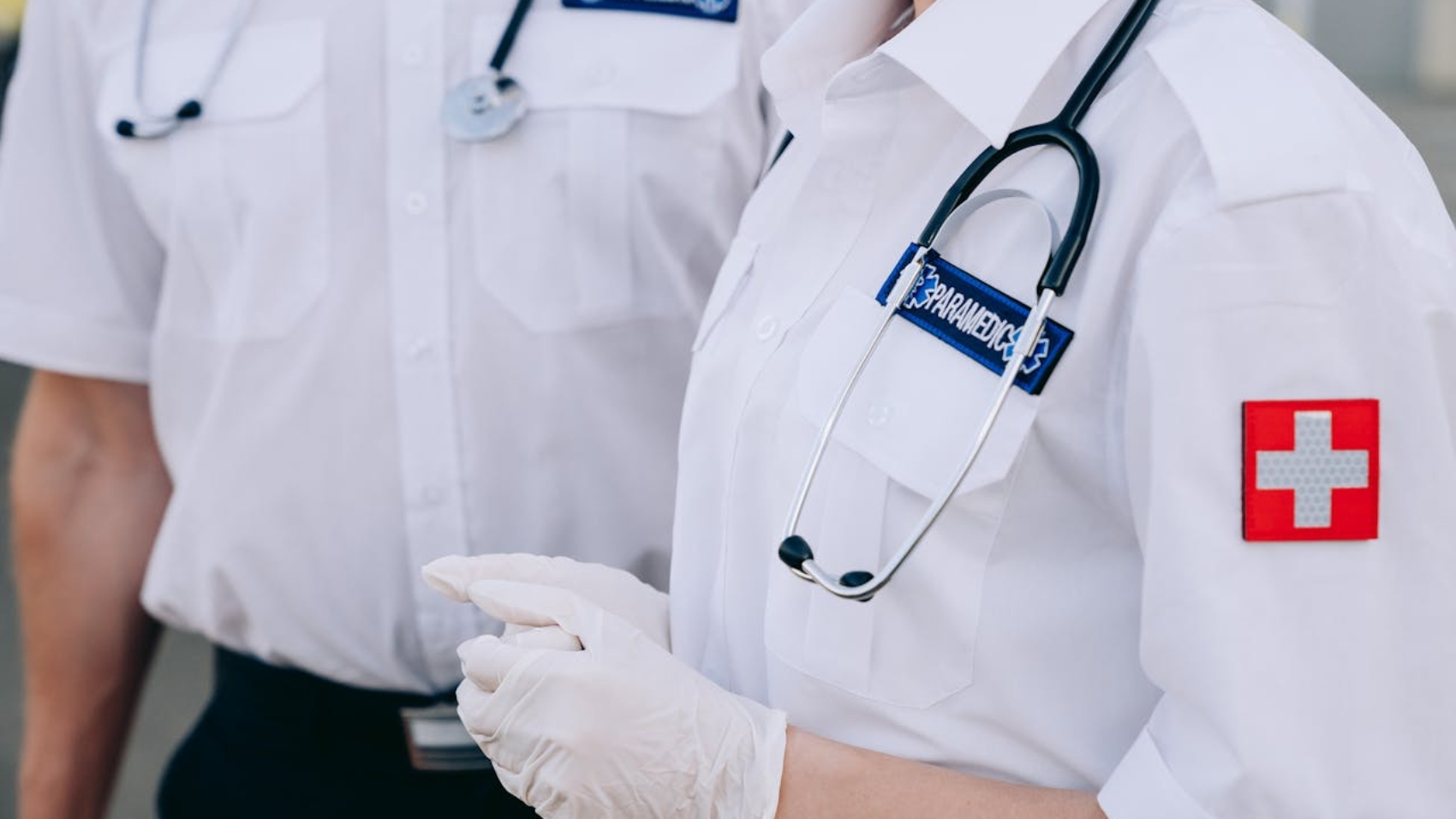Μια Νέα Εποχή για τα Τμήματα Επειγόντων με Τεχνητή Νοημοσύνη
Το Γενικό Νοσοκομείο Λάρισας αποτελεί πρωτοπόρο στην εφαρμογή καινοτόμων τεχνολογιών υγείας, υιοθετώντας το σύστημα ERTRIAGE – ένα προηγμένο ψηφιακό δίδυμο (Digital Twin) που αναδημιουργεί και βελτιστοποιεί τη λειτουργία του Τμήματος Επειγόντων Περιστατικών (ΤΕΠ) με υψηλή ακρίβεια και αποδοτικότητα.
Τι είναι το ERTRIAGE Digital Twin;
Το ERTRIAGE αποτελεί ένα ολοκληρωμένο σύστημα τεχνητής νοημοσύνης που δημιουργεί μια ψηφιακή αναπαράσταση του πραγματικού Τμήματος Επειγόντων, λειτουργώντας ως “agentic twin” – ένας ψηφιακός διδυμος που όχι μόνο παρακολουθεί αλλά και προβλέπει, προτείνει και ενεργά συμμετέχει στη βελτίωση των διαδικασιών.
Βασικά Χαρακτηριστικά του Συστήματος:
1. Προηγμένο Σύστημα Διαλογής (Triage)
Ενσωματωμένοι αλγόριθμοι κλινικής διαλογής βάσει διεθνών πρωτοκόλλων
Υποστήριξη ESI (Emergency Severity Index), Manchester Triage System, NEWS (National Early Warning Score)
Αυτοματοποιημένη αξιολόγηση της κατάστασης των ασθενών σε πραγματικό χρόνο
2. Σταθμοί Διαλογής με Έξυπνη Δρομολόγηση
Δικτυωμένοι σταθμοί διαλογής με ενιαία διαχείριση
Αυτόματη κατανομή ασθενών βάσει διαθεσιμότητας και ειδικότητας
Ψηφιακή παρακολούθηση ουρών αναμονής και χρόνων εξυπηρέτησης
3. Πραγματικός Χρόνος Παρακολούθησης Ζωτικών Σημείων
Συνεχής ροή δεδομένων από ιατρικές συσκευές
Ανάλυση βιοδεικτών και προειδοποίηση κρίσιμων καταστάσεων
Ενσωμάτωση με συστήματα παρακολούθησης ασθενών
Η Δύναμη της Γενετικής Τεχνητής Νοημοσύνης
Το καινοτόμο στοιχείο του ERTRIAGE είναι η χρήση γενετικής AI (Generative AI) που ενημερώνεται σε πραγματικό χρόνο, μαθαίνοντας από κάθε αλληλεπίδραση και βελτιώνοντας συνεχώς την απόδοσή της.
Λειτουργίες Γενετικής AI:
Συνεχής Μάθηση και Προσαρμογή
Ανάλυση ημερήσιων ροών ασθενών και εξαγωγή patterns
Προβλέψεις αιχμής φόρτου εργασίας
Προσαρμογή στις τοπικές ιδιαιτερότητες του νοσοκομείου
Ενισχυμένο Σύστημα Υποστήριξης Αποφάσεων (DSS)
Πρόταση βέλτιστων κλινικών πρωτοκόλλων για κάθε περίπτωση
Προειδοποιήσεις για πιθανές επιπλοκές
Βελτιστοποίηση διαθεσιμότητας πόρων και προσωπικού.
Πραγματικός Χρόνος Παρακολούθησης
Το σύστημα παρέχει:
Ζωντανό dashboard με όλα τα μετρικά του τμήματος
Προβλέψεις αιχμής για τις επόμενες 6-24 ώρες
Αυτόματες ειδοποιήσεις για κρίσιμες καταστάσεις
Αgentic Staff: Ψηφιακοί Συνεργάτες Υψηλής Απόδοσης
Τα agentic elements του συστήματος λειτουργούν ως έξυπνοι ψηφιακοί συνεργάτες που:
Μιμούνται εμπειρογνώμονες γιατρούς στη λήψη κρίσιμων αποφάσεων
Προτείνουν βέλτιστες διαδρομές φροντίδας για κάθε ασθενή
Συντονίζουν πόρους σε πραγματικό χρόνο για μέγιστη αποδοτικότητα
Μέχρι την ολοκληρωμένη εκπαίδευση και αυτονομία του συστήματος το Digital Twin ER υποστηρίζται από το προσωπικό του νοσοκομέιου, με στόχο την όλο και περισσότερη αυτονομία του συστήματος.
Τεχνική Αρχιτεκτονική και Ενοποίηση
Συστήματα Διασύνδεσης
HL7 FHIR πρότυπα για ασφαλή ανταλλαγή δεδομένων
API Gateway για ενοποίηση με υπάρχοντα νοσοκομειακά συστήματα
Real-time data pipelines για συνεχή ροή πληροφοριών
Ασφάλεια και Συμμόρφωση
GDPR compliant διαχείριση προσωπικών δεδομένων υγείας
End-to-end κρυπτογράφηση όλων των επικοινωνιών
Audit trails για πλήρη ιχνηλασιμότητα
Μελλοντικές Εξελίξεις και Επεκτάσεις
Προβλεπτική Ανάλυση
Πρόβλεψη επιδημιολογικών κυμάτων και προετοιμασία πόρων
Seasonal patterns recognition για βελτιστοποίηση στελέχωσης
Predictive maintenance ιατρικού εξοπλισμού
Διεπαφές Επόμενης Γενιάς
Φωνητικές εντολές για hands-free λειτουργία
Mobile applications για γιατρούς και ασθενείς
Συμπεράσματα: Το Μέλλον των Επειγόντων είναι Εδώ
Το ERTRIAGE Digital Twin αντιπροσωπεύει μια επαναστατική προσέγγιση στη διαχείριση Τμημάτων Επειγόντων Περιστατικών. Η επιτυχημένη εφαρμογή του στο Γενικό Νοσοκομείο Λάρισας αποδεικνύει ότι η ενσωμάτωση προηγμένης τεχνητής νοημοσύνης με κλινική εμπειρία μπορεί να οδηγήσει σε:
Καλύτερα κλινικά αποτελέσματα για τους ασθενείς
Βελτιωμένες συνθήκες εργασίας για το ιατρονοσηλευτικό προσωπικό
Μεγαλύτερη αποδοτικότητα στη χρήση νοσοκομειακών πόρων
Ανθεκτικότητα απέναντι σε κρίσεις υγείας
Καθώς περισσότερα νοσοκομεία υιοθετούν παρόμοιες τεχνολογίες, το ERTRIAGE καθιερώνεται ως το νέο standard για τα έξυπνα Τμήματα Επειγόντων του μέλλοντος, όπου η τεχνολογία και η ανθρώπινη φροντίδα συνεργάζονται αρμονικά για τη σωτηρία ζωών.











